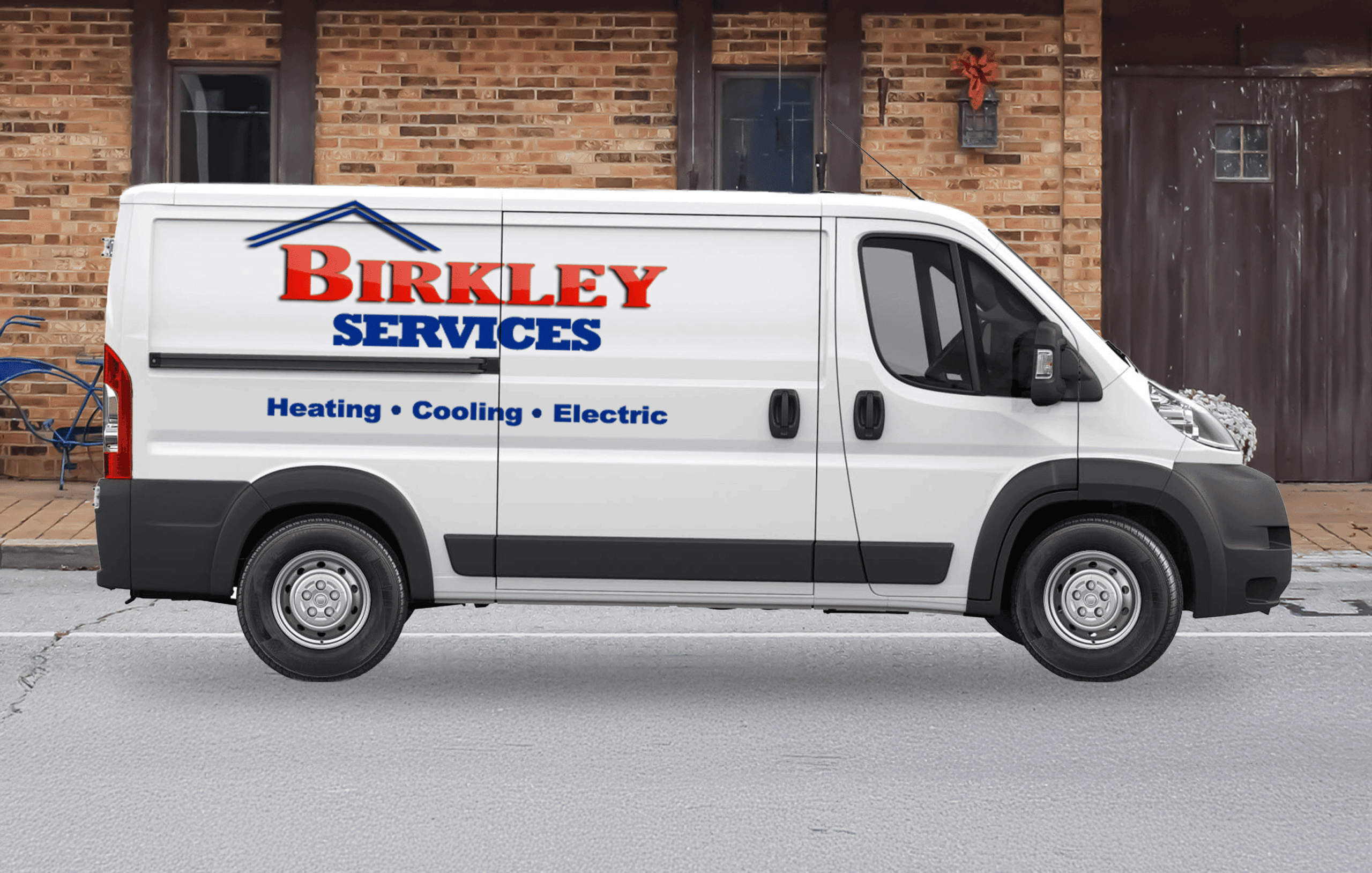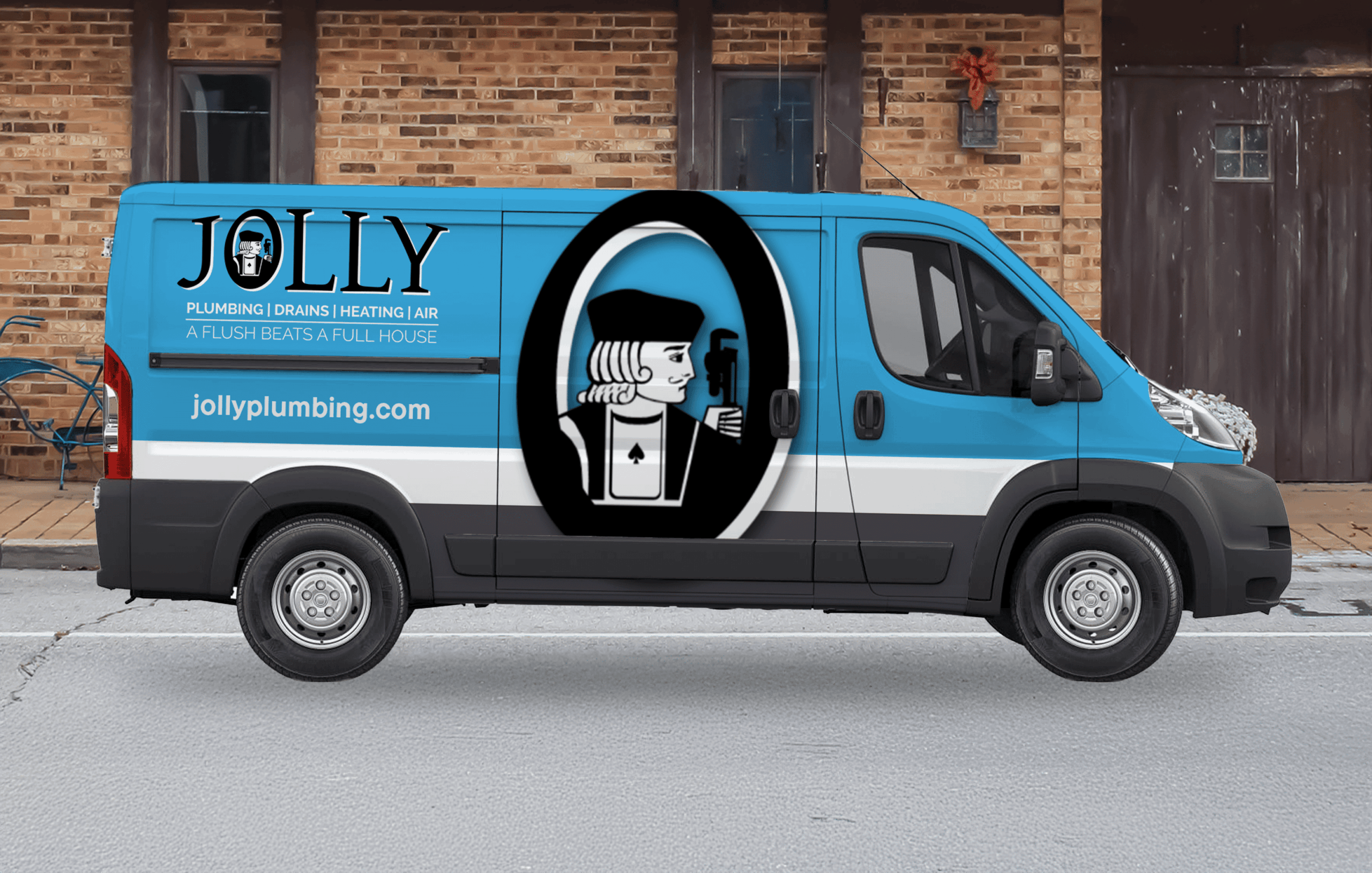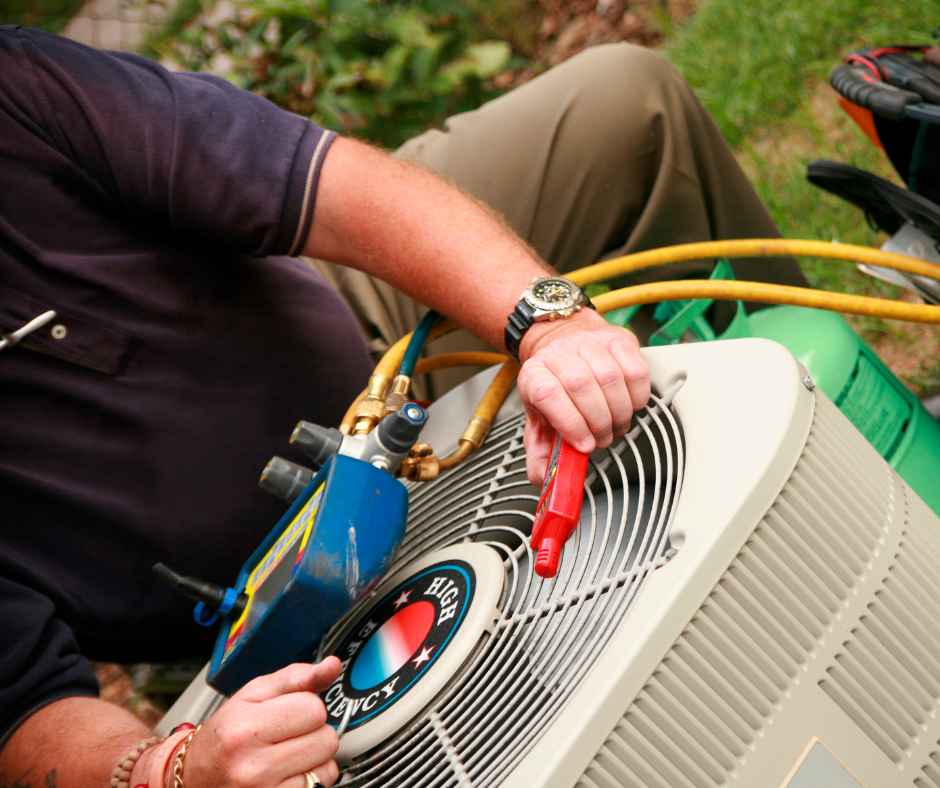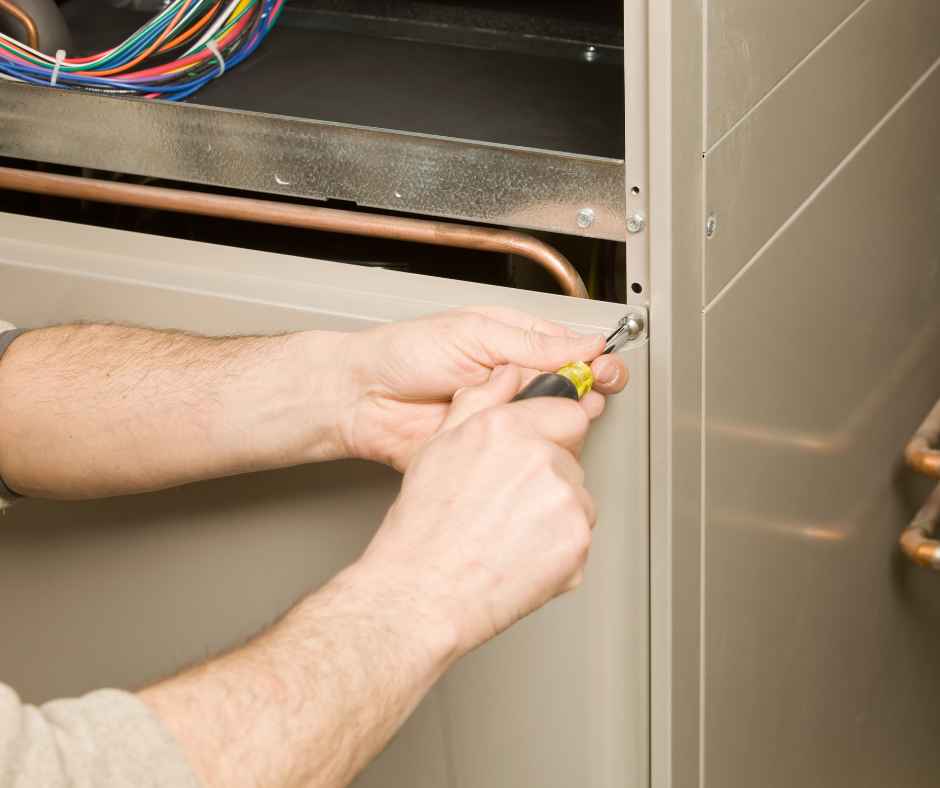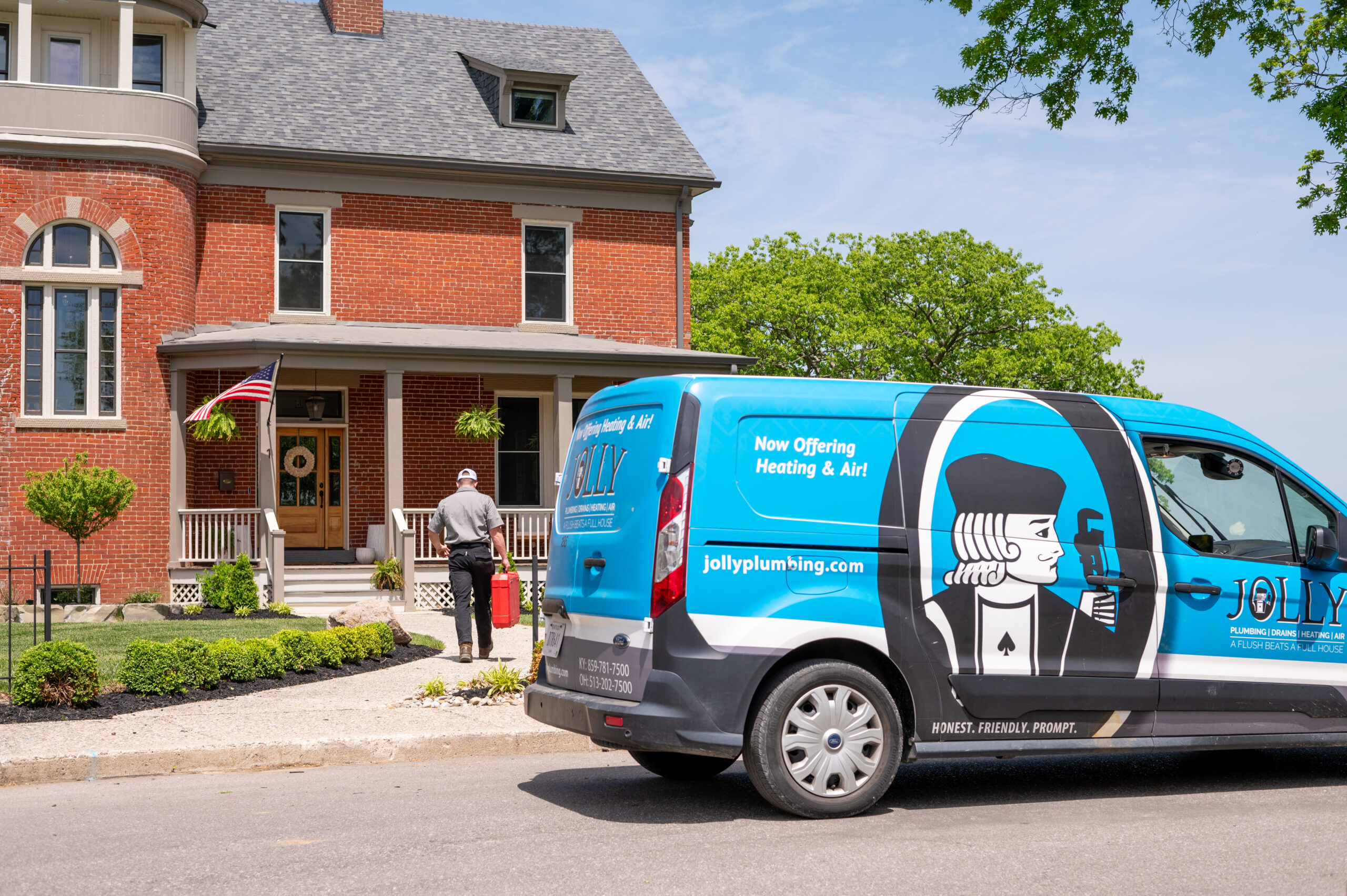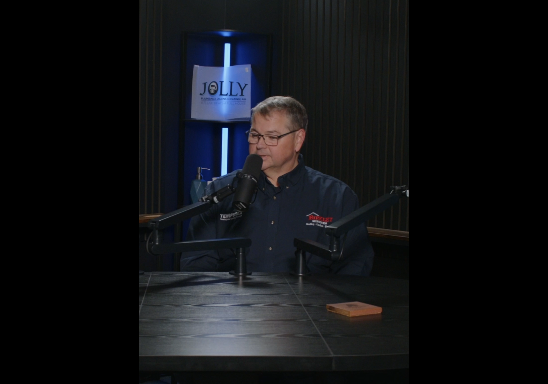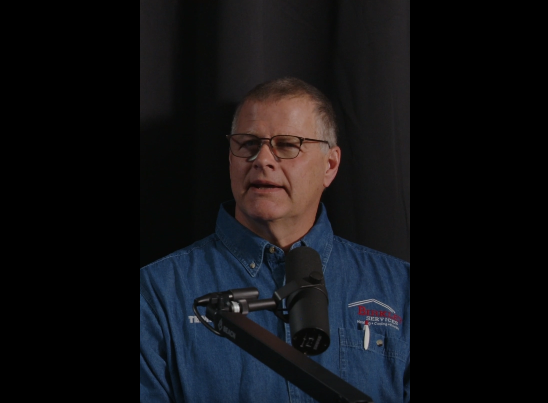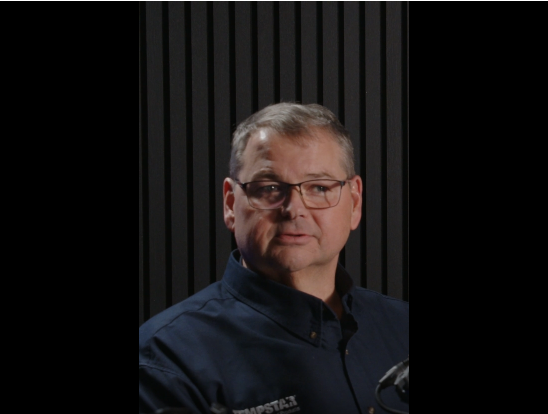If your drains seem to clog over and over again, you are not alone. Many homeowners in Northern Kentucky deal with recurring drain backups, especially during heavy rain or sudden temperature changes. Between older sewer systems, shifting clay soil, and everyday buildup from grease and debris, local plumbing systems face more strain than most.
A backed-up drain is more than an inconvenience. It can lead to slow drainage, foul odors, and even water damage if ignored. Knowing why your drains keep clogging and how to fix the issue before it gets worse can save you time, stress, and costly repairs.
In this blog, we will explain the most common reasons drains back up in Northern Kentucky homes, what you can do about it, and when to call the professionals at Jolly Plumbing, Drains, Heating & Air.
Common Signs Your Drain Is Backing Up
Drain backups often start small before turning into a bigger plumbing problem. Recognizing the early warning signs can help you act quickly and avoid expensive damage. Here are some of the most common signs that your drain may be backing up:
- Slow-Draining Fixtures: Sinks, tubs, or showers that take longer to drain are usually the first sign of a partial blockage forming in your pipes.
- Gurgling Sounds: Bubbling or gurgling noises from drains, toilets, or tubs often mean air is trapped in your plumbing system because of a blockage.
- Unpleasant Odors: Foul smells coming from your drains can indicate trapped waste or buildup inside your pipes that is preventing proper flow.
- Water Pooling Around Floor Drains: Standing water in your basement or near floor drains is a serious sign that wastewater may be backing up into your system.
- Multiple Fixtures Backing Up at Once: If several drains clog or overflow at the same time, the issue likely involves your main sewer line, not just a single fixture.
When these symptoms appear, it is important to investigate the cause before the situation worsens. Catching drain problems early can help prevent water damage and protect your plumbing system.
What Causes Drain Backups in Northern Kentucky
Northern Kentucky’s mix of older homes, heavy rainfall, and clay-rich soil creates the perfect environment for recurring drain problems. Understanding the root cause of a backup is the first step toward preventing it from happening again.
Here are the most common reasons drains back up in this region:
- Tree Root Intrusion: Many older properties have clay or cast-iron sewer lines that can crack over time. Tree roots naturally seek moisture and can grow into these small openings, eventually blocking the flow of wastewater.
- Grease and Food Buildup: Pouring fats, oils, and food scraps down the drain can cause sticky buildup that traps other debris. Over time, this forms a stubborn clog that no amount of plunging can remove.
- Hair and Soap Scum: Bathroom drains collect hair, soap residue, and hygiene products that create dense blockages in pipes. These clogs tend to form slowly, leading to gradually slower drainage.
- Damaged or Collapsed Sewer Lines: Shifting soil and natural wear can cause sewer pipes to crack, sag, or collapse. When this happens, waste cannot flow properly, causing water to back up into sinks, tubs, and toilets.
- Heavy Rainfall and Flooding: Northern Kentucky experiences frequent storms that can overwhelm storm drains and sewer systems. When the system cannot handle the extra water, backups can occur inside homes, especially in basements.
Local conditions make these issues more likely, but regular maintenance and professional inspection can catch small problems before they lead to major repairs.
The Difference Between a Simple Clog and a Serious Backup
Not every slow drain means your plumbing system is in trouble, but knowing how to tell the difference between a simple clog and a serious backup can save you from major headaches later.
A simple clog usually affects one fixture, such as a kitchen sink or bathroom drain. These are often caused by localized buildup of hair, soap, grease, or food particles. In many cases, homeowners can handle these minor clogs with basic tools or safe cleaning methods.
A serious backup, on the other hand, affects multiple drains or causes wastewater to flow in the wrong direction. This often points to a blockage deep in your main sewer line, which connects all the drains in your home to the city’s sewer system. When that line is obstructed, water has nowhere to go and can start coming back up through lower drains or basement floor drains.
Other warning signs of a serious backup include:
- Water bubbling up in one drain when you use another
- Toilets gurgling when sinks drain
- Sewage odors coming from multiple fixtures
If you notice these symptoms, the problem is more than just a simple clog. A licensed plumber can use camera inspection and diagnostic tools to find the exact cause and clear the line safely.
When to Call a Professional Plumber
Some drain issues can be handled with simple DIY methods, but recurring or widespread backups require professional attention. Knowing when to make that call can save you from water damage, costly repairs, and unnecessary stress.
You Should Call a Professional If:
- Multiple Drains Are Backing Up: If water is coming up through more than one fixture, it usually means there is a blockage in your main sewer line.
- Water or Sewage Is Pooling Indoors: Any standing water or sewage backup should be treated as an emergency. It can cause property damage and pose health risks.
- DIY Fixes Are Not Working: If plunging, snaking, or natural drain cleaners do not solve the problem, there may be a deeper issue that only professional tools can reach.
- You Notice Bad Odors or Gurgling Sounds: Persistent smells or noises often point to a problem inside your plumbing system, not just a surface-level clog.
- You Have Frequent Backups in the Same Drain: Repeated clogs in the same area suggest there is an underlying issue, such as pipe damage or buildup further down the line.
Why Professional Help Matters
Professional plumbers use advanced equipment such as camera inspection tools and hydro jetting machines to locate and remove the root cause of drain problems. These methods are safe for your pipes and provide a long-lasting fix rather than a temporary solution.
For homeowners in Northern Kentucky, choosing a local expert like Jolly Plumbing, Drains, Heating & Air ensures your drain is repaired quickly and correctly. Our team understands the region’s soil conditions, older plumbing systems, and frequent weather challenges that contribute to drain issues.
How Professionals Fix a Backed-Up Drain
When you call a plumber for a backed-up drain, the goal is not only to remove the blockage but also to identify why it keeps happening. Professional plumbers have the tools and expertise to find and fix the source of the problem efficiently and safely.
Here is how the process usually works:
- Initial Inspection: The plumber begins by checking your drains and plumbing fixtures to determine whether the issue is isolated or part of a larger sewer line problem.
- Camera Inspection: A small waterproof camera is fed into your pipes to locate the exact cause and location of the blockage. This step helps identify issues such as tree roots, pipe collapse, or heavy buildup.
- Mechanical or Power Snaking: For most clogs, a motorized auger or drain snake is used to break through and remove debris. This method clears the pipe without damaging it.
- Hydro Jetting: If buildup is extensive, hydro jetting may be used. This process involves sending a high-pressure stream of water through your pipes to remove grease, roots, and other obstructions. It leaves the inside of your pipes clean and free of residue.
- System Testing: After clearing the line, the plumber tests your system to make sure water flows smoothly and no hidden issues remain.
- Preventive Recommendations: Once the drain is clear, your plumber may suggest preventive steps such as regular maintenance or installing a cleanout for easier access in the future.
Professional drain cleaning does more than fix the current problem; it helps extend the lifespan of your plumbing system. Jolly Plumbing, Drains, Heating & Air uses modern equipment and proven techniques to ensure your Northern Kentucky drains stay clear and reliable.
How to Prevent Future Drain Backups
Once your drains are clear, the next step is keeping them that way. Preventive care is the best way to avoid frustrating and costly backups in the future. With a few consistent habits and regular maintenance, you can protect your home’s plumbing year-round.
Here are some simple ways to prevent future drain issues:
- Watch What You Flush: Only flush human waste and toilet paper. Items like wipes, paper towels, and feminine hygiene products can clog pipes and lead to major backups.
- Be Careful in the Kitchen: Avoid pouring grease, oil, coffee grounds, or food scraps down your sink. Use a sink strainer to catch debris before it enters the drain.
- Use Hair Catchers in Showers and Tubs: These inexpensive tools can stop hair and soap scum from building up inside your drains.
- Schedule Routine Drain Cleaning: Professional maintenance at least once a year keeps your pipes clear and allows plumbers to spot early signs of trouble.
- Inspect Your Sewer Line Regularly: Homes in older neighborhoods should schedule camera inspections every few years to detect tree root growth or damage before it leads to a blockage.
- Divert Rainwater Away from the Foundation: Ensure your gutters and downspouts direct water away from your home to prevent excess groundwater from entering your sewer system.
Preventive maintenance saves money and stress in the long run. Regular inspections and professional drain cleaning are especially important in Northern Kentucky, where aging infrastructure and frequent rainfall increase the risk of backups.
Jolly Plumbing, Drains, Heating & Air offers ongoing maintenance plans designed to keep local homes running smoothly and reduce the risk of unexpected plumbing problems.
Keep Your Home Flowing Smoothly
A backed-up drain can quickly turn from a small inconvenience into a major problem if left untreated. For homeowners in Northern Kentucky, the combination of aging infrastructure, heavy rainfall, and shifting soil makes plumbing maintenance an essential part of home care.
Knowing the warning signs, practicing smart drain habits, and calling a professional when needed are the best ways to keep your plumbing system in top shape. While DIY methods can handle small clogs, recurring or widespread backups require expert attention.
Jolly Plumbing, Drains, Heating & Air has been helping Northern Kentucky homeowners solve tough drain problems for years. Our team uses advanced technology, reliable repair methods, and local expertise to clear backups and prevent them from returning. If your drain keeps backing up, contact Jolly Plumbing today and keep your home flowing smoothly all year long.
Frequently Asked Questions About Drain Backups in Northern Kentucky
How often should I have my drains professionally cleaned?
For most homes, professional drain cleaning once a year is enough to prevent buildup and keep water flowing smoothly. Homes with older plumbing systems, frequent backups, or large families may benefit from cleaning every six months.
Can heavy rain really cause my drains to back up?
Yes. Northern Kentucky’s heavy rainfall can overwhelm combined sewer systems and cause stormwater to enter residential lines. This pressure can force water back into your home through floor drains or lower-level fixtures.
Is hydro jetting safe for older pipes?
In most cases, yes. Professional plumbers adjust the water pressure during hydro jetting to match the condition and material of your pipes. If your plumbing is severely corroded or damaged, your plumber may recommend alternative methods.
What should I do immediately if my basement drain starts backing up?
Stop using water in your home right away and avoid running any sinks, toilets, or appliances. Turn off the power to affected areas if it is safe to do so, and contact a plumber immediately to prevent further damage.
Are recurring drain backups a sign I need sewer line replacement?
They can be. Frequent clogs or backups may indicate a deeper problem such as collapsed, cracked, or root-filled sewer pipes. A camera inspection can confirm the condition of your line and whether replacement or repair is needed.
